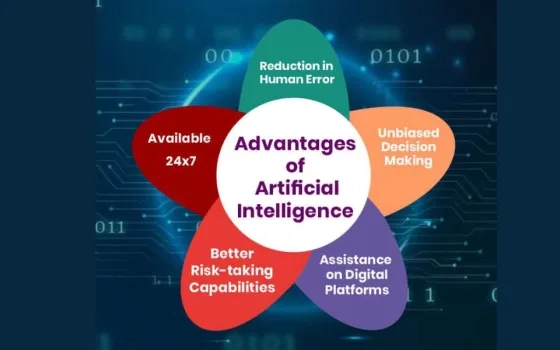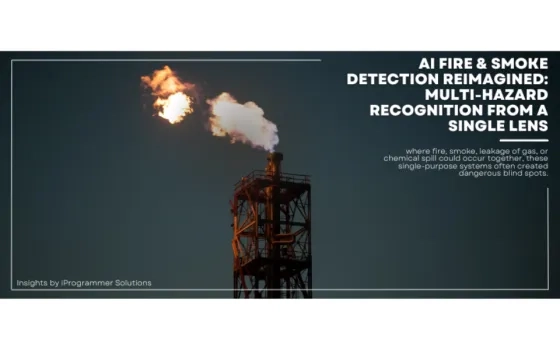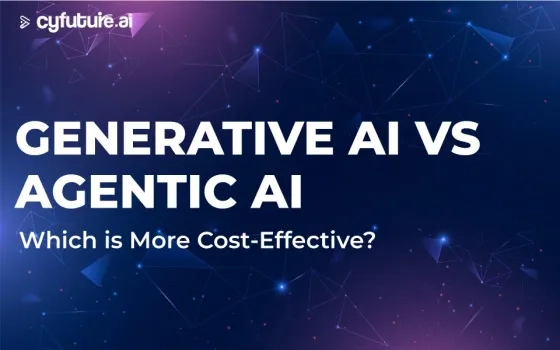Artificial Intelligence (AI) has come a long way since its inception, with advancements in technology making it more accessible and widespread in our daily lives. However, the integration of AI has both advantages and disadvantages that we need to consider. In this article, we will explore the advantages and disadvantages of artificial intelligence in today's world.
What is Artificial Intelligence?
Artificial Intelligence refers to the simulation of human intelligence in machines that can perform tasks that typically require human-like thinking, such as learning, problem-solving, and decision-making. AI is transforming various industries, including healthcare, finance, retail, and transportation. However, despite the many benefits that AI offers, there are also drawbacks that we need to take into account.
Advantages of Artificial Intelligence
- Improving Efficiency
One of the most significant advantages of AI is that it can help improve efficiency in various industries. By automating repetitive and time-consuming tasks, AI can free up employees to focus on more complex and creative work. AI-powered tools can also complete tasks faster and more accurately than humans, reducing the time and effort required to complete them.
- Reducing Error Rates
Human error can be costly, especially in industries such as healthcare and finance. AI can help reduce error rates by identifying patterns and anomalies that humans might miss. AI-powered systems can also learn from past mistakes, improving accuracy over time.
- Predictive Analytics
AI can analyze vast amounts of data and use that data to make predictions and forecasts. This capability can be useful in various industries, including finance and marketing. By analyzing customer data, AI with Power BI can help companies tailor their products and services to specific customer needs and preferences.
- 24/7 Availability
Unlike humans, AI-powered systems can work around the clock without getting tired or taking breaks. This capability is especially useful in industries such as customer service, where customers expect 24/7 availability.
- Better Customer Experience
AI-powered tools can provide personalized recommendations and solutions, improving the overall customer experience. Chatbots, for example, can help customers quickly and efficiently resolve their issues, reducing wait times and improving customer satisfaction.
- Decision Making
AI can help businesses make more informed decisions by providing real-time insights and data analysis. This technology can help businesses analyze large datasets and identify trends, enabling them to make better-informed decisions. For instance, banks can use AI to analyze credit scores and other data to make more accurate lending decisions.
- Cost Reduction
Another advantage of AI is cost reduction. By automating tasks and reducing the need for human labor, companies can cut costs significantly. For instance, AI-powered machines can replace human workers in manufacturing plants, reducing labor costs and improving production speed. Additionally, businesses can use AI to streamline supply chain management, reducing inventory costs, and optimizing delivery routes.
Disadvantages of Artificial Intelligence
- Job Displacement
One of the most significant concerns about AI is that it may lead to job displacement. As AI-powered systems become more prevalent, they may replace humans in various industries, leading to unemployment and a shift in the job market.
- Cost and Complexity
Implementing AI can be costly and complex, requiring significant investments in hardware, software, and infrastructure. Maintaining and updating AI systems can also be expensive and time-consuming.
- Biased Algorithms
AI algorithms are only as good as the data they are trained on. If the data is biased or incomplete, the resulting AI system may also be biased. Biased AI algorithms can perpetuate existing social and economic inequalities, leading to unfair treatment and discrimination.
- Security Risks
AI systems may be vulnerable to cyberattacks, leading to data breaches and other security risks. As AI becomes more prevalent, it may become an increasingly attractive target for hackers and other malicious actors.
- Dependence on Technology
As we become more reliant on AI, we may also become more dependent on technology in general. This dependence could lead to a situation where we are unable to function without technology, leading to potential issues in the event of system failures or downtime.
- Lack of Human Interaction
AI lacks the human touch, which can make it difficult for some people to accept it. This technology cannot replicate human emotions and communication, which can be crucial in certain industries, such as healthcare and education. For instance, patients may prefer to receive care from human doctors and nurses rather than AI-powered machines.
- Privacy Concerns
AI can collect vast amounts of data on individuals, which raises privacy concerns. There is a risk that this data could be misused or exploited by businesses or malicious actors. Additionally, the use of AI in surveillance can erode individuals' privacy and civil liberties, raising concerns about government overreach.
AI in the Future
Despite the challenges and drawbacks of AI, it is clear that technology will play an increasingly important role in our lives in the future. As AI becomes more advanced, it may help us solve some of the most significant challenges we face, such as climate change, healthcare, and education.
However, we must also be mindful of the potential risks and drawbacks of AI, working to ensure that it is developed and deployed in a responsible and ethical manner. This will require collaboration between industry leaders, policymakers, and the public to create a framework that balances the benefits of AI with the potential risks.
AI's Impact on Society
The impact of AI on society is complex and multifaceted. On the one hand, AI has the potential to improve many aspects of society, from healthcare to education to transportation. On the other hand, the widespread adoption of AI could lead to significant job losses, exacerbate inequality, and raise concerns about privacy and surveillance.
To ensure that the benefits of AI are realized while minimizing its potential drawbacks, it is essential to approach its development and deployment with caution. Governments, businesses, and individuals must work together to establish ethical guidelines and regulations that protect individuals' rights and mitigate the risks associated with AI.
Conclusion
In conclusion, AI has both advantages and disadvantages that we need to consider as it becomes more prevalent in our daily lives. AI can improve efficiency, reduce error rates, and provide better customer experiences, but it may also lead to job displacement, biased algorithms, and security risks. As we move forward with AI, we must work to address these challenges while maximizing the benefits of the technology.
FAQs
Que 1- Is AI going to take over all jobs in the future?
While AI may displace some jobs, it is unlikely to take over all jobs. Many jobs require human skills, such as creativity and empathy, that are difficult to replicate with AI.
Que 2- How can we ensure that AI algorithms are unbiased?
Ensuring that AI algorithms are unbiased requires careful attention to data collection and analysis. It is essential to use representative and diverse data sets and to regularly audit AI algorithms for biases.
Que 3- Can AI be used to combat climate change?
Yes, AI can be used to help us address climate change by analyzing environmental data and providing insights into ways to reduce greenhouse gas emissions.
Que 4- Is AI safe to use?
AI can be safe to use if it is developed and deployed responsibly and ethically. However, there are potential security risks and other challenges that need to be addressed to ensure the safe use of AI.
Que 5- What role should policymakers play in the development of AI?
Policymakers play an important role in ensuring that AI is developed and deployed in a responsible and ethical manner. They can create regulations and guidelines that balance the benefits of AI with the potential risks, ensuring that AI is used for the benefit of society as a whole.



















